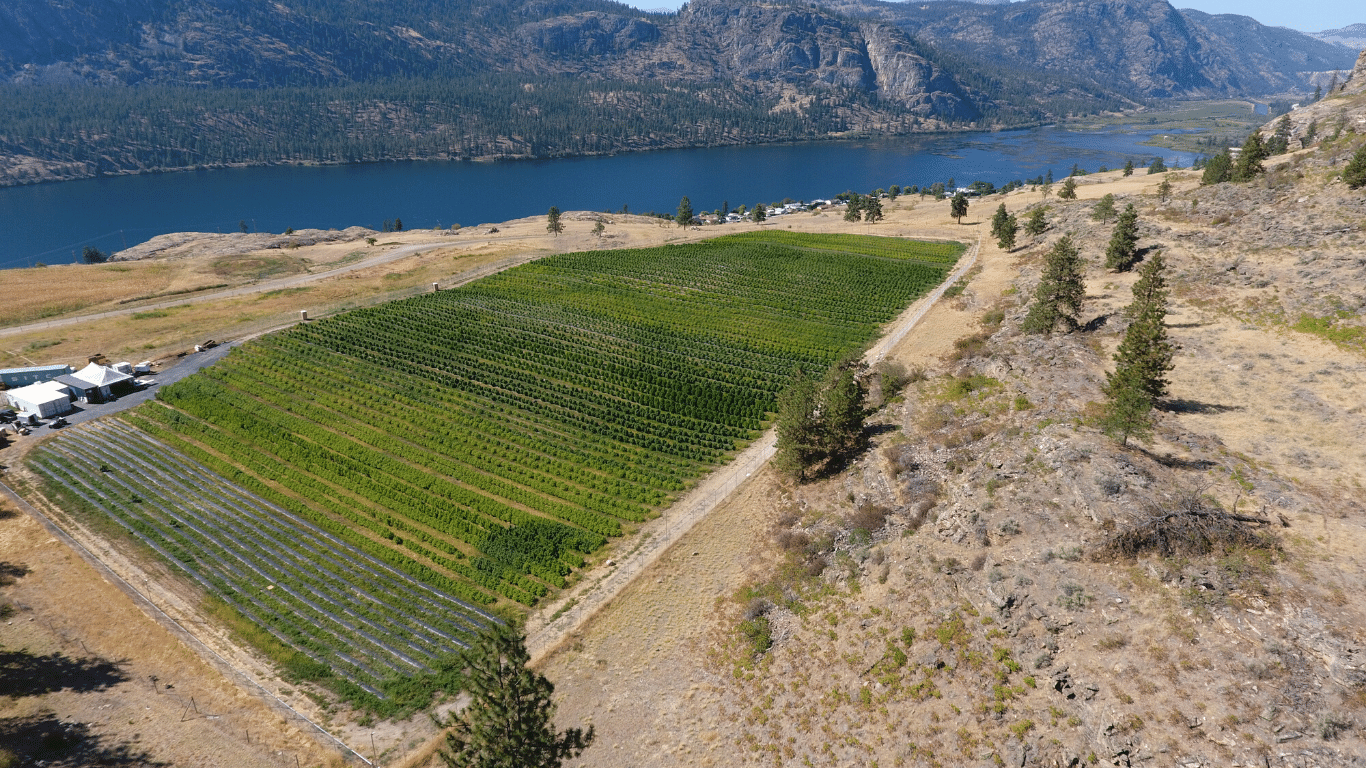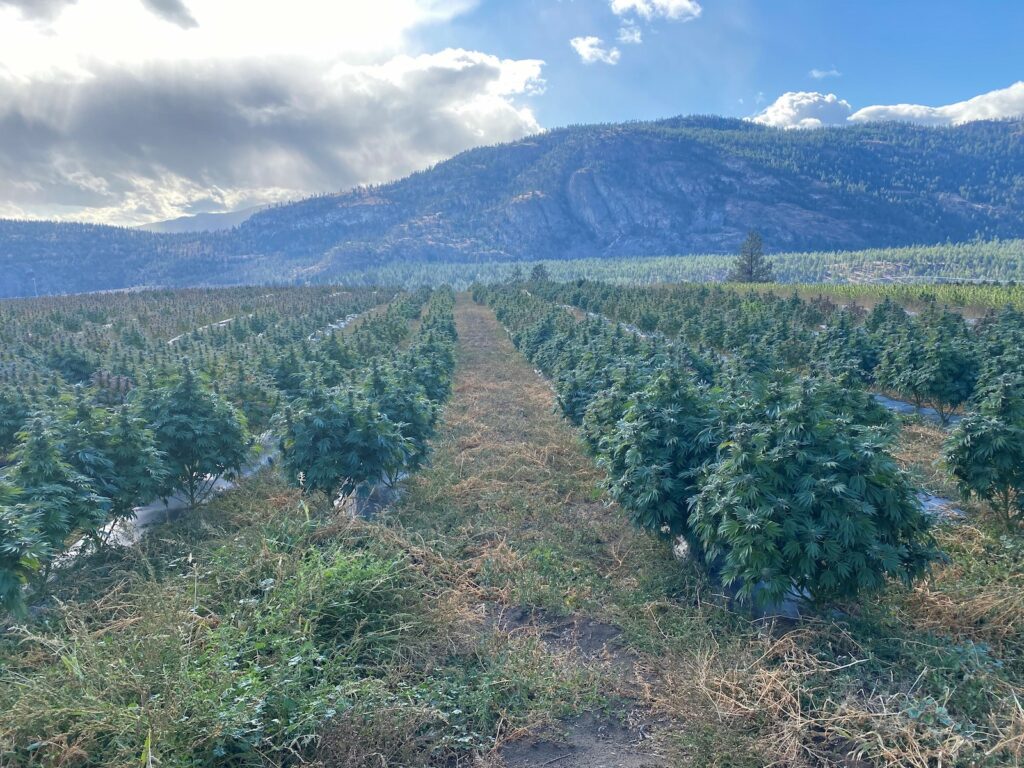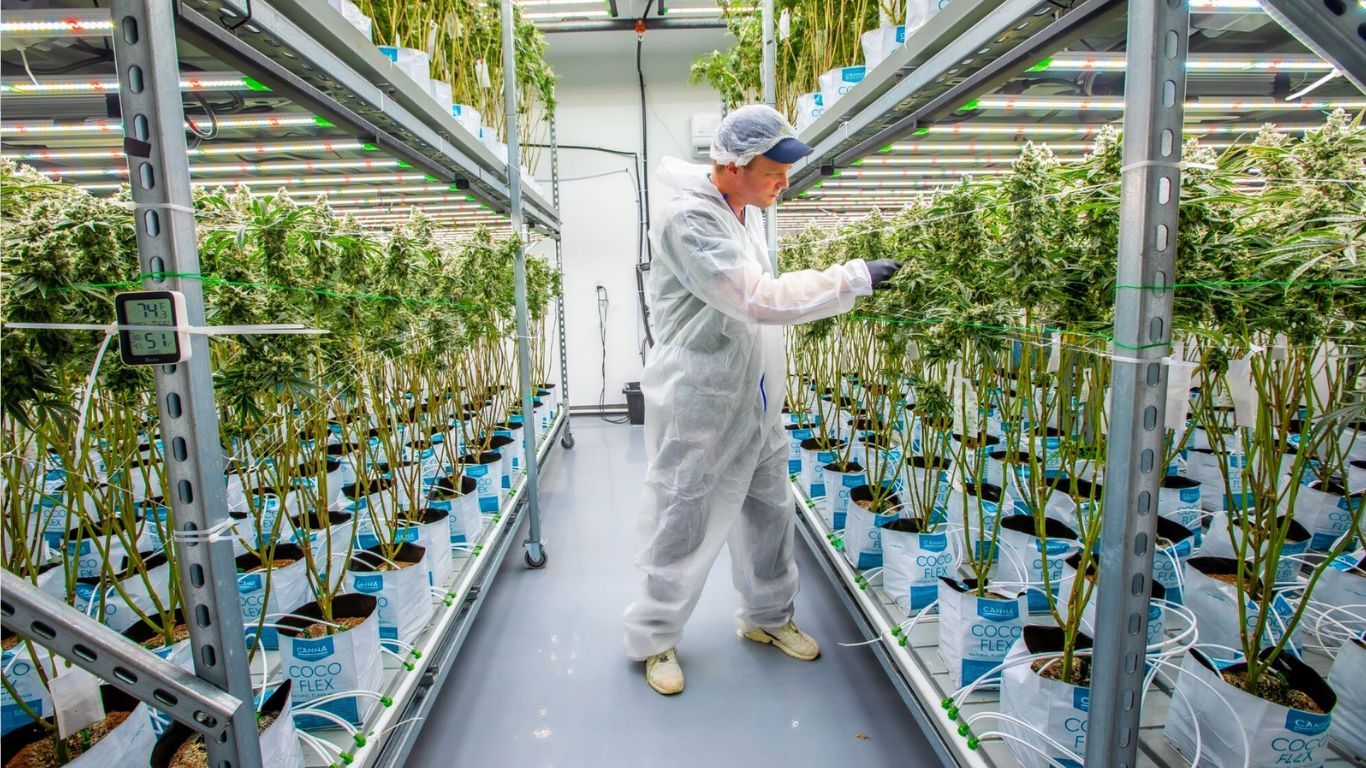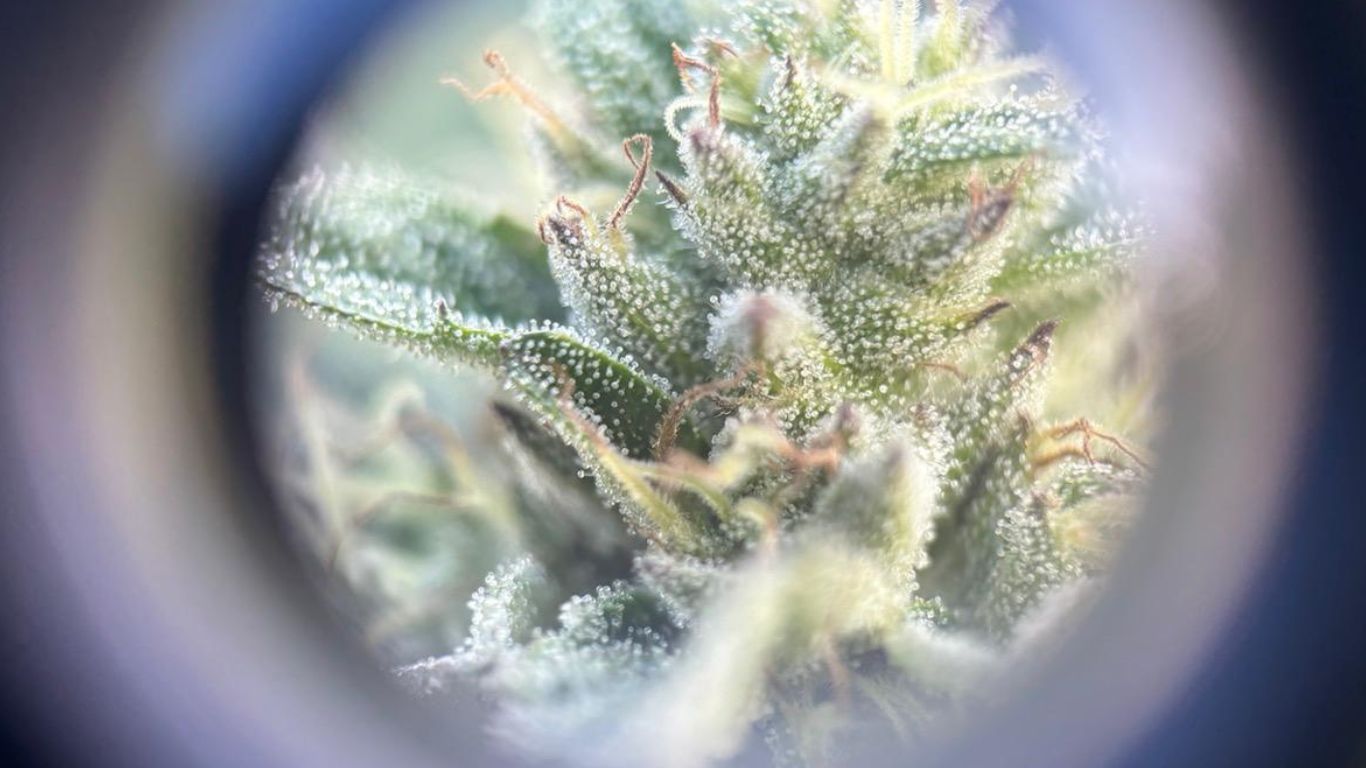
McIntyre Creek Cannabis is part of a 16,000 acre ranch in Oliver, British Columbia, in the southern Okanagan Valley.
The company, licensed for standard cultivation this past April, has eight and half acres in production and is focussed on a flash frozen and freeze drying process intended primarily for processing into live resin and live rosin.
Harvest began earlier this year, with two autoflower cultivars and is expected to continue into November, with crops being cut down and flash frozen in sixty minutes. From there, the product can either be shipped frozen, directly to other processors, or can then be freeze dried for more long term storage.
One of the core benefits of flash freezing is that you’re not piled into having to sell the product in October or November when all the other outdoor cultivators are selling their product.
Colin Davison, Director
The processes, explains McIntyre Creek’s Director and President, Colin Davison, are intended to produce a higher quality product for live resin and live rosin, and also give them more flexibility with regards to when to sell their products into the market. While the flash freezing process can be more labour intensive and require additional infrastructure – they spent over a million dollars on this alone – he estimates it will pay off.
“One of the core benefits of flash freezing is that you’re not piled into having to sell the product in October or November when all the other outdoor cultivators are selling their product,” says Davison. “The product can stay perfectly preserved in the freeze dried state for that matter, so it really allows us to release our product to the market in a much more organized streamlined fashion instead of having to rush the product to market.”
It’s creating demand because it’s concentrated products with more of the terpenes that get lost with the standard drying and curing.
Even with long term storage options, Davison says he sees little trouble filling processors’, retailers’, and consumers demands. The freezing process, he says helps preserve the terpenes much better than conventional drying and curing. And the handful of these products that have hit the market have sold out in hours, even at prices often far above the current illicit market standard.

“There seems to be really solid demand for fresh frozen product, and for the live product,” Davison continues. “Certainly the retail side of live resin and live rosin is pushing other, larger LPs to really look at our product. It’s creating demand because it’s concentrated products with more of the terpenes that get lost with the standard drying and curing.”
We would like to team up with processors who are focused on taking live products to the marketplace and moving more to the custom farming model where we work with a select group of processors who are processing and sales of live products in the marketplace.
Their intention, he says, is to find processors who want to focus on live resin and live rosin and develop partnerships to supply them long term, while working with them to select cultivars and production methods. Rather than focussing on a retail brand, he says their intention is to stick to growing good cannabis.
“We’re really focussed on just being the best outdoor cultivators that we can and looking at innovative ideas and ways to be a leader in outdoor cultivation.
“We have strong opinions on trying to not be everything to everyone. And really would like to team up with processors who are focused on taking live products to the marketplace and moving more to the custom farming model where we work with a select group of processors who are processing and sales of live products in the marketplace.”
They’ve also partnered with another outdoor cultivator in the Okanogan, Che’ LeBlanc of Rosebud Farms about three hours east in Salmo, BC, to gain access to starting material.
LeBlanc is a long time cultivator in the region, growing and breeding cannabis for the last several decades. Davison says they are providing access to McIntyre Creek’s flash frozen and freeze dried infrastructure while Rosebud has helped provide them with several of their unique strains suitable to the region.
Of the nine strains McIntyre Creek grew this year, he says he was the most happy with the two legacy strains he got from LeBlanc.
“They’ve been just as advertised and we’ve had fantastic yields, with harvest coming off the end of September, early October, compared to some of the other strains we planted where we were looking as late as November. Very high THC and yield.”
One of the challenges with the freezing process McIntyre Creek is using, says Davison, is how unfamiliar Health Canada was with the process at that point, from a licensing perspective. As both outdoor and those frozen processes are much newer to the branch than indoor production and standard drying and curing, it was a learning curve for them, too.
“Part of the problem is that Health Canada has little experience on outdoor to begin with, but when it comes to the flash freezing and freeze dried stuff, they have even less experience on those items,’ he explains. “They’ve been good to work with, but it took a lot of breaking down the process, making sure they understood the process and going from there to work through it.”
Davison says the plan is to continue as a cultivation only licence, at least for the time being, while expanding the footprint of their farm, potentially doubling the acreage for next year. They also are in the process of seeking organic certification for their cannabis.
“We’re not looking to brand our own product or have a real retail presence. We would rather team with others who are doing that and we’ll supply the raw material, and then teaming with them to feed into their system. Processors may want to put our name on it and show that it comes from BC outdoor growers, but we want to just focus on growing great cannabis.”











